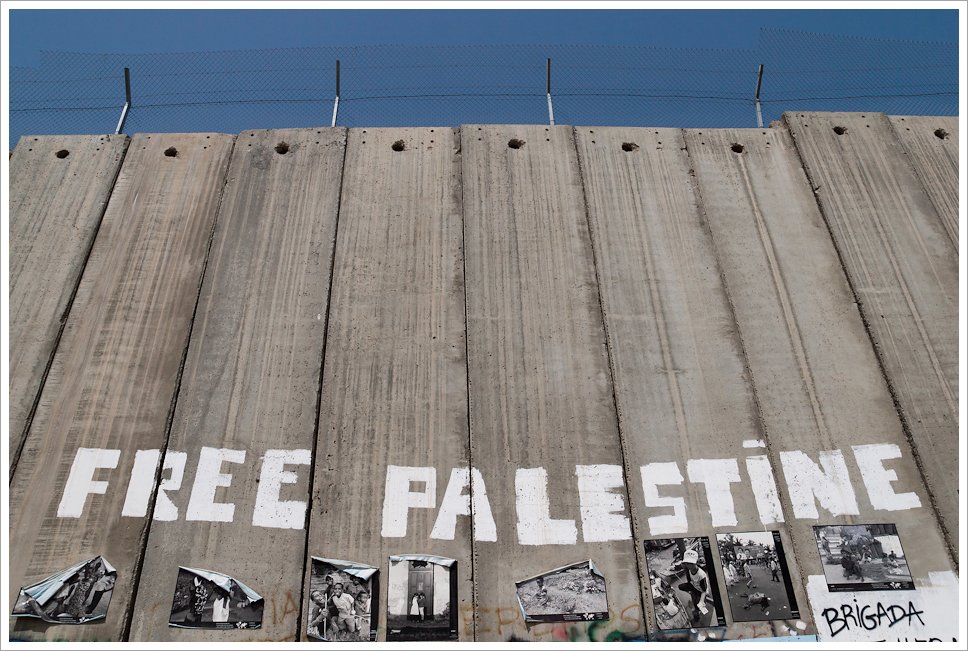Originally published at MintPress News.
JERUSALEM — Despite widespread criticism over the ways Israel has provoked the latest wave of violence engulfing the West Bank and Gaza, the media in the West mostly focuses on attacks by Palestinians on Israeli settlers and soldiers, ignoring the context that led to the current tensions.
Electronic Intifada, a site that advocates for Palestinian freedom, noted that a prominent BBC radio programon Monday attempted to imply that all of the dead in recent violence were Israelis:
With 42 Palestinians killed at that time, and thousands more injured in attacks by settlers and soldiers, [Host John] Humphrys began his conversation with [journalist Kevin Connolly] like this: “Yet another attack on Israelis last night. This time an Arab man with a gun and a knife killed a soldier and wounded 10 people. Our Middle East correspondent is Kevin Connolly. The number is mounting, isn’t it Kevin? The number is about 50 now, isn’t it?”
Although this is an extreme example of what Electronic Intifada’s Amena Saleem calls “concern for the occupier,” it reflects the one-sided focus of other media coverage of recent violence. Saleem pointed out several facts missing from mainstream media accounts:
Palestinians in the West Bank suffered more than 130 settler attacks in the first week of October alone and, in Gaza, have endured more than 700 Israeli attacks since a ceasefire was signed on 26 August last year.
Meanwhile, many of the dead in recent violence are teenagers, often executed by Israeli soldiers after alleged knife attacks. Last week, MintPress News published Richard Silverstein’s report on the escalating brutality against Palestinians, which begins,
Each new day in the current round of strife in Palestine seems to bring news that more Palestinians have been killed in increasingly gruesome ways by Israeli security forces. Each day, more young people take to the streets with whatever weapon is at their disposal in a heroic, and often fatal, effort to uphold the honor of Al-Aqsa Mosque and the dignity of the Palestinian people.
The New York Times reported on recent criticism of Israel by the United Nations’ cultural heritage agency over Israel’s handling of Al-Aqsa Mosque and other sacred sites in Jerusalem. In a resolution, UNESCO cited the mishandling of these “heritage sites” as a major cause of violence:
“It “strongly condemns” what it calls “Israeli aggressions and illegal measures against the freedom of worship and Muslims’ access to their holy site, Al Aqsa Mosque” and “firmly deplores the continuous storming’ of the mosque compound by ‘Israeli right-wing extremists and uniformed forces.”
U.N. leadership also supported these concerns:
The United Nations secretary general, Ban Ki-moon, speaking on Wednesday at a news conference in Ramallah with the president of the Palestinian Authority, Mahmoud Abbas, said he was “deeply concerned by repeated provocations at the holy sites in Jerusalem, which have fueled the current outbreak of violence.”
But while the Times’ report acknowledges the role of Israel’s illegal settlers in provoking violence, it ignores the context in which those settlers were actively encouraged to provoke the Palestinians by the Israeli government and its prime minister, Benjamin Netanyahu.
On Wednesday, William Saletan, a political journalist at Slate, wrote that Israel is now in the midst of a crisis that was deliberately provoked by Netanyahu:
Two weeks ago, after a series of domestic terror attacks, Prime Minister Benjamin Netanyahu issued a challenge to Israel’s Arab citizens. ‘Will you follow the path of coexistence, peace, loyalty to the country of which you are a part?’ he demanded. “You cannot have it both ways … enjoying all the rights available in democratic Israel’ while ‘undermining the country.”
But Saletan argues that it is really Netanyahu that’s undermined Israel’s stability:
Earlier this year, he won re-election by vilifying Israeli Arabs. He promised that no Palestinian state would be established on his watch, and he warned Israeli Jews and right-wingers that ‘Arab voters’ and ‘the Arab population’ were trying to topple him. Now, in the face of Israeli Arab violence, he’s demanding loyalty. He can’t have it both ways. Netanyahu cultivated an enemy within, and now he’s got it.
